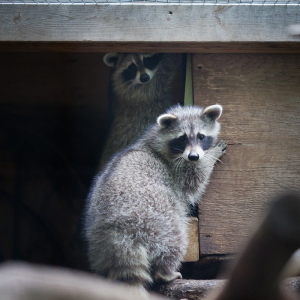|
King Weekly Sentinel https://kingsentinel.com/?p=5060 Export date: Thu Dec 5 2:21:33 2024 / +0000 GMT |
Canine distemper found in local raccoons By Mark Pavilons Raccoons are common in rural areas like King, and despite their cute appearance, they can be both mischievous and carry diseases. The incidence of canine distemper (CDV) within the raccoon population has some concerned. CDV has been prevalent in the GTA for years, and it has finally reached King Township. The Toronto Wildlife Centre works with King Township in responding to such cases, and at least one local resident was pleased with the quick response when she found a raccoon acting “strangely” in her back yard. It displayed the symptoms of CDV. According to Nathalie Karvonen, executive director at TWC, canine distemper is a viral disease. The symptoms of this strain in raccoons are lethargy, ataxia/lack of coordination, loss of fear of people (you might be able to walk right up to them and touch them if they are sick, and they would barely react), odd behaviour (like sitting in the middle of a sidewalk in the middle of the day in the pouring rain) and having seizures. She said they would most likely contract the disease from other sick animals, but could also contract it by being in the area where sick animals have been (and have left the virus behind). People cannot contract CDV, but dogs can. Most dogs are vaccinated against this disease but if the dog is not up to date on its vaccines, or is immune-compromised, it could be at risk. It may have originated in dogs, and jumped into wildlife populations. She said there's not much that can be done about the disease. “It may just have to run its course,” she said. The public should know that they are not at risk, but it is more important than ever to ensure their dogs are well vaccinated. People should be on the lookout for sick raccoons. They should be captured and removed from the population, since the affected animals are unlikely to recover (it is almost always fatal), and it is highly contagious. Sick raccoons left to roam will undoubtedly affect others, Karvonen pointed out. If the public sees raccoons they believe may be sick, they should call TWC's wildlife hotline to discuss the situation and see if action is warranted. The hotline number is 416-631-0662 and is available 9 a.m. to 6 p.m., 365 days a year. Callers will likely need to leave a message, but their call will be returned shortly. Karvonen noted every situation is different, and everyone's ability and willingness to help is different. Some people can capture a raccoon (with instruction) and transport it to TWC themselves. In other cases, TWC's rescue staff may need to come and help. If a raccoon is diagnosed with distemper, it will unfortunately have to be humanely euthanized. If the raccoon does not have CDV, but is otherwise sick or injured, TWC will do its best to rehabilitate and release the raccoon back to the wild. TWC is dependent on donations, so public support is welcome. For more, visit http://www.torontowildlifecentre.com. |
| Excerpt: Raccoons are common in rural areas like King, and despite their cute appearance, they can be both mischievous and carry diseases. |
|
Post date: 2014-11-12 10:05:43 Post date GMT: 2014-11-12 15:05:43 Post modified date: 2014-11-19 08:53:39 Post modified date GMT: 2014-11-19 13:53:39 |
|
Export date: Thu Dec 5 2:21:33 2024 / +0000 GMT This page was exported from King Weekly Sentinel [ https://kingsentinel.com ] Export of Post and Page has been powered by [ Universal Post Manager ] plugin from www.ProfProjects.com |